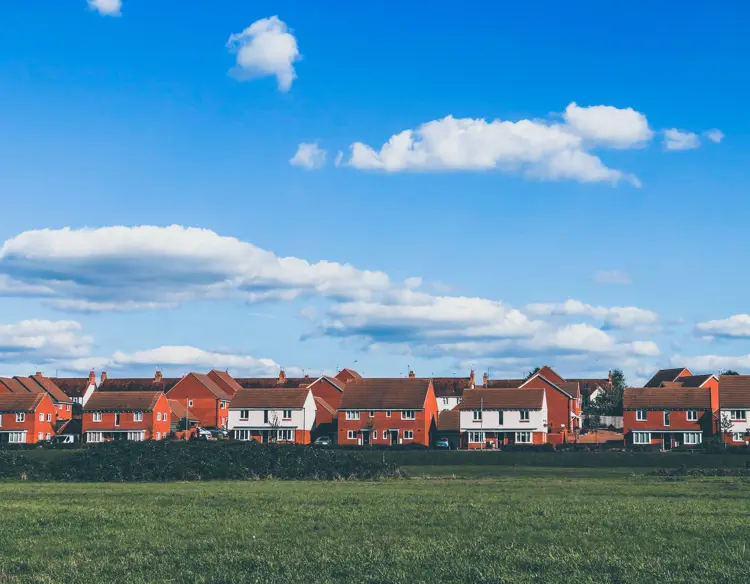The Market
Approximately 10% of the island’s housing stock comprises open market dwellings.
Market Categories
The Guernsey housing market is divided into 2 categories: dwellings which are available for occupation by anyone and which are inscribed on the Housing Register (commonly known as “open market”) and dwellings which can only be occupied by persons holding residential qualifications or a licence issued by the Housing Department (commonly known as “local market”).
To underwrite the warranties and give them real value a retention may be made for a period of time from the purchase monies
Consequences
Where a company is acquired, the purchaser will take on not only the company’s assets, but also its liabilities. The Agreement should include protection for the purchaser as to the extent of the company’s obligations. This is done by including written statements or “warranties”. These are representations, which, if incorrect, give the purchaser a right to claim compensation from the vendors who gave them. To underwrite the warranties and give them real value a retention may be made for a period of time from the purchase monies.
Borrowing
If the purchaser is borrowing to fund the purchase, the bank may require security over the property on completion. As the property will not be owned directly by the purchasers, the company will normally give a guarantee for the purchasers’ (or new shareholders’) borrowings. This guarantee will be secured by a Bond (mortgage) over the property. This creates a legal issue called “financial assistance for the acquisition of own shares” where the company is procuring finance to create a market in its own shares. Certain procedures must be followed carefully to make this lawful.
Inheritance
There are inheritance implications if land is held through a company. This is because the purchaser will own shares in the company, which are considered to be personal estate, rather than owning Real Property (land).
Where an individual makes a Will in Guernsey, dealing with both their Real Property and personal estate, they have complete freedom to leave all of their assets to whomever they wish, subject to the ability for certain categories of individuals to make claims against estates for reasonable financial provision.
However, where an individual does not make a Will, there are different rules in place that govern how your Real Property and personal estate will pass and, depending on your circumstances, your Real Property and personal estate may pass differently.
However, if you are not domiciled in Guernsey at the date of your death, Guernsey law will not govern the distribution of your personal estate.
It is therefore advisable to obtain the advice of an Advocate when purchasing land, whether through a company or not, to ensure that it will pass in accordance with your wishes on your death.
Many of Guernsey’s open market properties are owned not by those living in them, but by limited companies, which are usually registered in Guernsey
SHARE TRANSFERS
Companies
Many of Guernsey’s open market properties are owned not by those living in them, but by limited companies, which are usually registered in Guernsey. The true “owners” are the proprietors of the shares of the company. The only name on the title documents of the property is that of the company.
Advantages
The advantage of purchasing shares rather than the property itself is that at the moment no stamp duty is payable when shares in a Guernsey company are sold. This, however, will change in the near future. Document duty is, however, payable when a Guernsey property changes hands by conveyance. This duty is chargeable at 3% of the realty price (not including contents), so the saving can be substantial.
Accordingly, the practice has developed for high value properties to be transferred to dedicated companies whose only asset will be the property. On a subsequent sale of “the property” the actual transaction is a sale of the shares in the property-owning company. Because there is no conveyance, there is a total mitigation of duties. This significant benefit for the purchaser may, in turn, be reflected in a premium in the sale price for the seller.
Transaction
A Share Sale and Purchase Agreement (“Agreement”) is entered into between the seller and the purchaser, which is a more extensive document than Conditions of Sale - the normal contract used in a sale of land. Property, planning and other issues still need to be investigated as though a conveyance were to be entered into. The Agreement will stipulate a date for final completion.
With a standard conveyance, a conveyance document is drafted and consented to by the parties before the Contract Court on a Tuesday or Thursday morning. However, a completion by way of share transfer takes place by the signing of documentation, principally stock transfer forms. Thus completion by this method may take place any day of the week and at any time.
Who can live in an Open Market property?
Open Market properties are freely available for purchase or rent and occupation by anyone with the right of abode in the UK or other EU member state and are generally lived in by those who are unable to obtain a Housing Licence to live in a local market property.
These properties (a complete list of which is maintained on the Housing Register) are often larger houses and can be considerably more expensive than Local Market Properties.
Housing licences are issued broadly in either of the following scenarios:
Where the employment of the applicant is regarded as essential to the community by reason of skill, qualifications or experience; or
where the familial or like connections with the island are of sufficient strength to justify the grant of the licence.
Housing licences are granted for periods as short as 3 months and up to 15 years in cases where the employment is considered essential (e.g. teachers and doctors).
History
The evolution of the distinction between the two types of dwelling commenced in 1948 when, as a result of a severe housing shortage, the States of Guernsey passed legislation prohibiting persons, who were not ordinarily resident in the island at some time during a specified period, from occupying a dwelling without a licence. This principle has evolved through successive pieces of legislation passed during the intervening years.
The Housing Register (“Register”) was not created until 1969, which coincided with the emergence of Guernsey as a financial centre. The States had recognised the value to the local economy of attracting high net worth individuals and had initiated the development of a large residential estate on the site of a former military fort, with the intention that all of the dwellings constructed be inscribed on the Register. The owners of dwellings with a rateable value above the specified limit were also entitled to apply for their dwelling to be placed on the Register.
The Present Situation
Approximately 10% of the island’s housing stock comprises open market dwellings. These include most of the larger and well appointed homes in the island but there are also a large number of more modest properties.
A dwelling cannot be added to the Register without the States of Guernsey passing an Ordinance, unless the dwelling replaces a previous open market dwelling on the same site that has been demolished. As a result of limited numbers, the value of open market properties is higher than their local market equivalent. The category of persons who are qualified to occupy local market dwellings without a housing licence is, as a result
of successive laws, quite complicated to analyse. In general terms, qualification can be obtained as a result of the following:
- birth in the island and 10 years’ residence.
- birth to a qualifying parent and 10 years’ residence.
- 15 years’ residence as holder of a residential licence or 20 years as holder of a non-essential licence.
- 20 years’ residence if when first taking up residence in the island the person was the child of parents living in an open market dwelling.
To underwrite the warranties and give them real value a retention may be made for a period of time from the purchase monies
Consequences
Where a company is acquired, the purchaser will take on not only the company’s assets, but also its liabilities. The Agreement should include protection for the purchaser as to the extent of the company’s obligations. This is done by including written statements or “warranties”. These are representations, which, if incorrect, give the purchaser a right to claim compensation from the vendors who gave them. To underwrite the warranties and give them real value a retention may be made for a period of time from the purchase monies.
Borrowing
If the purchaser is borrowing to fund the purchase, the bank may require security over the property on completion. As the property will not be owned directly by the purchasers, the company will normally give a guarantee for the purchasers’ (or new shareholders’) borrowings. This guarantee will be secured by a Bond (mortgage) over the property. This creates a legal issue called “financial assistance for the acquisition of own shares” where the company is procuring finance to create a market in its own shares. Certain procedures must be followed carefully to make this lawful.
Inheritance
There are inheritance implications if land is held through a company. This is because the purchaser will own shares in the company, which are considered to be personal estate, rather than owning Real Property (land).
Where an individual makes a Will in Guernsey, dealing with both their Real Property and personal estate, they have complete freedom to leave all of their assets to whomever they wish, subject to the ability for certain categories of individuals to make claims against estates for reasonable financial provision.
However, where an individual does not make a Will, there are different rules in place that govern how your Real Property and personal estate will pass and, depending on your circumstances, your Real Property and personal estate may pass differently.
However, if you are not domiciled in Guernsey at the date of your death, Guernsey law will not govern the distribution of your personal estate.
It is therefore advisable to obtain the advice of an Advocate when purchasing land, whether through a company or not, to ensure that it will pass in accordance with your wishes on your death.
Many of Guernsey’s open market properties are owned not by those living in them, but by limited companies, which are usually registered in Guernsey
SHARE TRANSFERS
Companies
Many of Guernsey’s open market properties are owned not by those living in them, but by limited companies, which are usually registered in Guernsey. The true “owners” are the proprietors of the shares of the company. The only name on the title documents of the property is that of the company.
Advantages
The advantage of purchasing shares rather than the property itself is that at the moment no stamp duty is payable when shares in a Guernsey company are sold. This, however, will change in the near future. Document duty is, however, payable when a Guernsey property changes hands by conveyance. This duty is chargeable at 3% of the realty price (not including contents), so the saving can be substantial.
Accordingly, the practice has developed for high value properties to be transferred to dedicated companies whose only asset will be the property. On a subsequent sale of “the property” the actual transaction is a sale of the shares in the property-owning company. Because there is no conveyance, there is a total mitigation of duties. This significant benefit for the purchaser may, in turn, be reflected in a premium in the sale price for the seller.
Transaction
A Share Sale and Purchase Agreement (“Agreement”) is entered into between the seller and the purchaser, which is a more extensive document than Conditions of Sale - the normal contract used in a sale of land. Property, planning and other issues still need to be investigated as though a conveyance were to be entered into. The Agreement will stipulate a date for final completion.
With a standard conveyance, a conveyance document is drafted and consented to by the parties before the Contract Court on a Tuesday or Thursday morning. However, a completion by way of share transfer takes place by the signing of documentation, principally stock transfer forms. Thus completion by this method may take place any day of the week and at any time.
Who can live in an Open Market property?
Open Market properties are freely available for purchase or rent and occupation by anyone with the right of abode in the UK or other EU member state and are generally lived in by those who are unable to obtain a Housing Licence to live in a local market property.
These properties (a complete list of which is maintained on the Housing Register) are often larger houses and can be considerably more expensive than Local Market Properties.
Housing licences are issued broadly in either of the following scenarios:
- where the employment of the applicant is regarded as essential to the community by reason of skill, qualifications or experience; or
- where the familial or like connections with the island are of sufficient strength to justify the grant of the licence.
Housing licences are granted for periods as short as 3 months and up to 15 years in cases where the employment is considered essential (e.g. teachers and doctors).
Approximately 10% of the island’s housing stock comprises open market dwellings
History
The evolution of the distinction between the two types of dwelling commenced in 1948 when, as a result of a severe housing shortage, the States of Guernsey passed legislation prohibiting persons, who were not ordinarily resident in the island at some time during a specified period, from occupying a dwelling without a licence. This principle has evolved through successive pieces of legislation passed during the intervening years.
The Housing Register (“Register”) was not created until 1969, which coincided with the emergence of Guernsey as a financial centre. The States had recognised the value to the local economy of attracting high net worth individuals and had initiated the development of a large residential estate on the site of a former military fort, with the intention that all of the dwellings constructed be inscribed on the Register. The owners of dwellings with a rateable value above the specified limit were also entitled to apply for their dwelling to be placed on the Register.
The Present Situation
Approximately 10% of the island’s housing stock comprises open market dwellings. These include most of the larger and well appointed homes in the island but there are also a large number of more modest properties.
A dwelling cannot be added to the Register without the States of Guernsey passing an Ordinance, unless the dwelling replaces a previous open market dwelling on the same site that has been demolished. As a result of limited numbers, the value of open market properties is higher than their local market equivalent. The category of persons who are qualified to occupy local market dwellings without a housing licence is, as a result
of successive laws, quite complicated to analyse. In general terms, qualification can be obtained as a result of the following:
- birth in the island and 10 years’ residence.
- birth to a qualifying parent and 10 years’ residence.
- 15 years’ residence as holder of a residential licence or 20 years as holder of a non-essential licence.
- 20 years’ residence if when first taking up residence in the island the person was the child of parents living in an open market dwelling.





